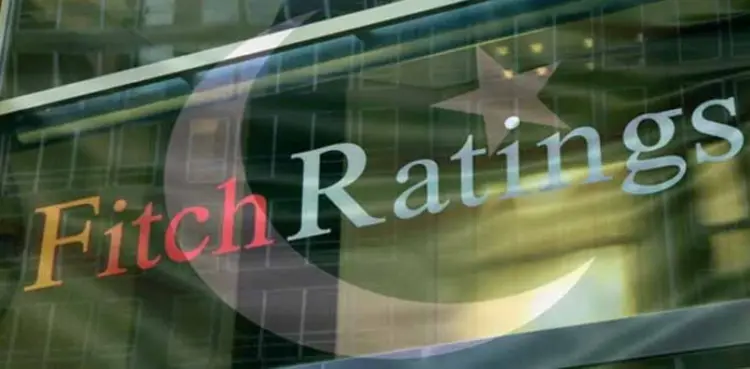
Global credit rating agency Fitch has predicted the possibility of a technocrat setup in Pakistan in case the Pakistan Muslim League-Nawaz (PML-N) government is ousted.
In its report on Pakistan, the rating agency predicted that the PML-N led coalition government will remain in power for the next 18 months with no immediate plans for fresh elections.
The incumbent government will continue to implement the reforms mandated by the International Monetary Fund (IMF) that will enable the economy to grow.
However, Fitch mentioned that the political upheaval might affect the economic activities in Pakistan along with the impacts of climate change including floods and drought.
According to the rating agency, former prime minister Imran Khan is unlikely to get released from jail in the foreseeable future despite getting relief in a number of cases.
The agency went on to predict that the next general elections in Pakistan will be held in 2029.
On the economic front, Pakistan’s current account deficit is projected to remained 1% in FY2024/25.
Read more: IMF deal to improve funding for Pakistan: Moody’s
The Fitch report suggested that the State Bank of Pakistan (SBP) might reduce its key policy rate from 22% to 16% in 2024.
A day earlier, Moody’s said that Pakistan’s recent staff-level agreement with the International Monetary Fund (IMF) will improve funding prospects for the cash-strapped South Asian nation.
The Shehbaz Sharif-led government and the IMF reached a three-year, $7 billion aid package deal on Saturday, providing much-needed respite to the nation. This agreement marks a critical step towards stabilizing Pakistan’s economy, which has been under severe strain.
Moody’s commented that the new IMF programme would enhance Pakistan’s (Caa3 stable) funding prospects. However, Moody’s cautioned that the government’s ability to sustain reform implementation is crucial for Pakistan to continually unlock financing throughout the IMF programme’s duration, thereby easing government liquidity risks durably.
Moody’s also acknowledged potential challenges, noting that social tensions arising from the high cost of living could impede reform implementation, especially with higher taxes and future adjustments to energy tariffs.
“Moreover, risks that the coalition government may not have a sufficiently strong electoral mandate to continually implement difficult reforms remain,” the agency added.
from ARY NEWS https://ift.tt/yqV17vk



0 Comments